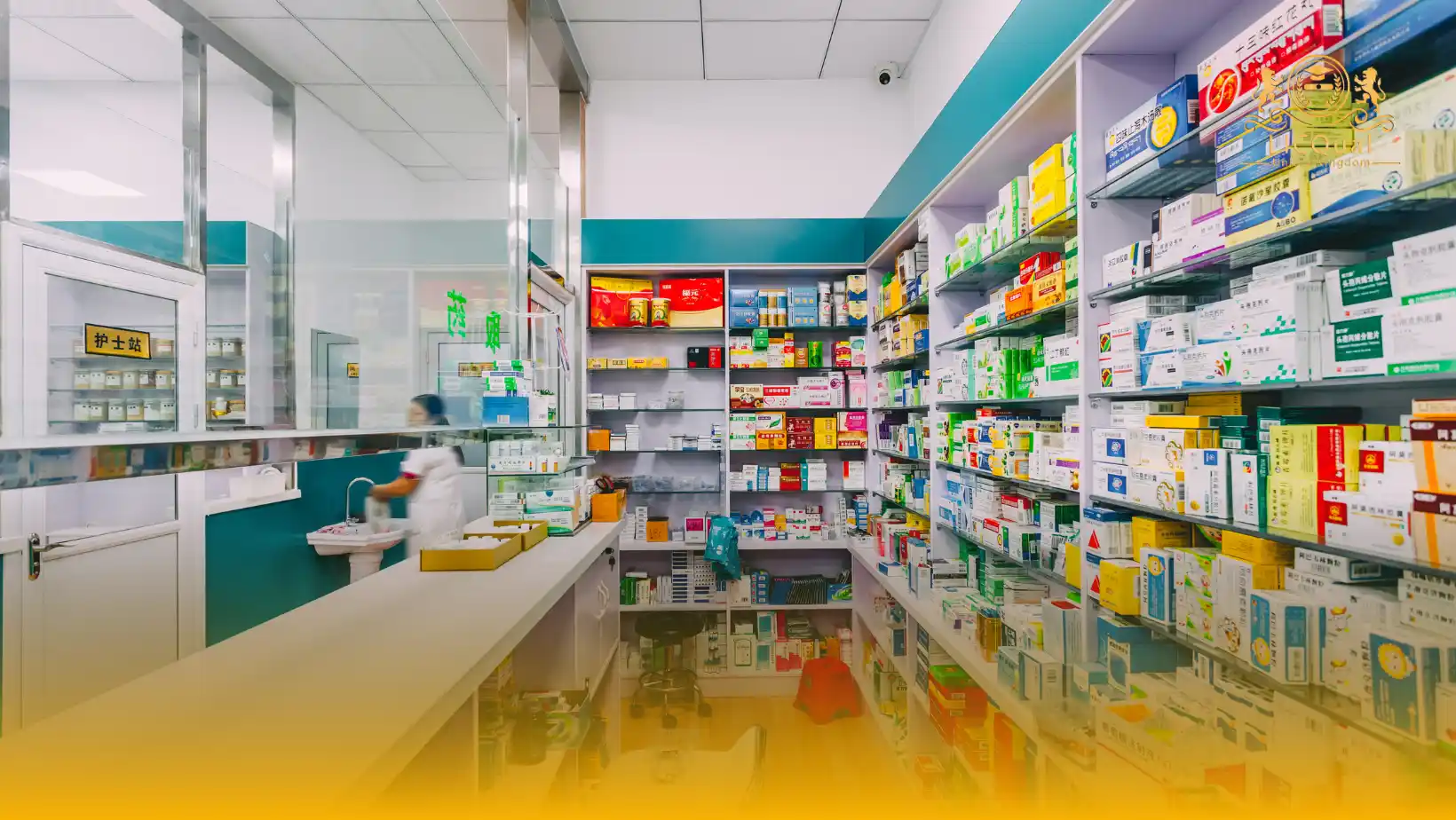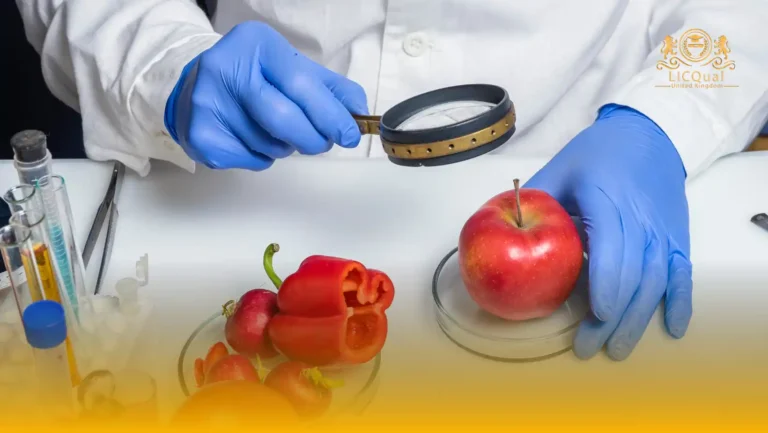The LICQual Level 3 Certificate in Pharmacy in Developing Countries (Cert Pharmacy in Developing Countries) is a specialised qualification designed to address the unique challenges and opportunities faced by pharmacy professionals working in resource-limited healthcare systems. This course equips learners with the knowledge and practical skills needed to improve pharmaceutical services, strengthen supply chains, and enhance patient care in developing regions.
Learners undertaking this qualification will gain a deeper understanding of the complexities of delivering pharmacy services where access to medicines, infrastructure, and healthcare resources may be limited. The course focuses on strategies for improving drug distribution, ensuring medication safety, and supporting sustainable healthcare practices. By completing this programme, learners will not only enhance their expertise but also expand their career prospects and demonstrate a strong commitment to Continuing Professional Development (CPD).
This qualification is designed for professionals who want to make a positive impact in pharmacy and healthcare while developing the skills to meet international standards of practice. It also prepares learners to contribute effectively to healthcare systems by addressing issues of accessibility, quality assurance, and community health.
Centres delivering this qualification must ensure high-quality learning by employing competent and qualified staff and providing all necessary materials, facilities, and resources. This ensures that every learner has access to the best possible training environment, enabling them to succeed and apply their knowledge effectively within real-world healthcare contexts.
By completing the LICQual Level 3 Certificate in Pharmacy in Developing Countries, learners take an important step towards advancing their careers while contributing to sustainable healthcare development worldwide.
Course Overview
Qualification Title
LICQual Level 3 Certificate in Pharmacy in Developing Countries (Cert Pharmacy in Developing Countries)
Total Units
6
Total Credits
24
GLH
120
Qualification #
LICQ2201156
Qualification Specification
To enroll in the LICQual Level 3 Certificate in Pharmacy in Developing Countries (Cert Pharmacy in Developing Countries) , applicants must meet the following criteria:
|
Qualification# |
Unit Title |
Credits |
GLH |
|---|---|---|---|
|
LICQ2201155-1 |
Introduction to Pharmacy in Developing Countries |
4 |
20 |
|
LICQ2201155-2 |
Essential Medicines and Access to Healthcare |
4 |
20 |
|
LICQ2201155-3 |
Pharmaceutical Supply Chain and Logistics |
4 |
20 |
|
LICQ2201155-4 |
Public Health and Community Pharmacy |
4 |
20 |
|
LICQ2201155-5 |
Regulatory Frameworks and Quality Assurance |
4 |
20 |
|
LICQ2201155-6 |
Applied Project in Pharmacy for Developing Countries |
4 |
20 |
By the end of this course, learners will be able to:
Unit 1: Introduction to Pharmacy in Developing Countries
By the end of this unit, learners will be able to:
- Explain the role and importance of pharmacy services in developing countries.
- Identify common healthcare challenges affecting pharmacy practice in resource-limited settings.
- Analyse the impact of social, economic, and cultural factors on access to medicines.
- Evaluate strategies to strengthen pharmacy systems in developing healthcare contexts.
Unit 2: Essential Medicines and Access to Healthcare
By the end of this unit, learners will be able to:
- Define the concept of essential medicines and their significance in global health.
- Assess barriers to equitable access to medicines in developing countries.
- Recommend strategies to improve the availability and affordability of essential drugs.
- Apply principles of rational medicine use to healthcare settings.
Unit 3: Pharmaceutical Supply Chain and Logistics
By the end of this unit, learners will be able to:
- Describe key stages in the pharmaceutical supply chain, from procurement to distribution.
- Evaluate challenges in medicine supply and storage in resource-limited environments.
- Apply techniques to improve supply chain efficiency and reduce shortages.
- Demonstrate awareness of sustainable logistics practices for medicine distribution.
Unit 4: Public Health and Community Pharmacy
By the end of this unit, learners will be able to:
- Explain the contribution of pharmacists to community health and preventive care.
- Assess the role of pharmacy in managing communicable and non-communicable diseases.
- Design community-based pharmacy interventions to promote health awareness.
- Apply principles of patient counselling and education in a community pharmacy setting.
Unit 5: Regulatory Frameworks and Quality Assurance
By the end of this unit, learners will be able to:
- Identify international and national regulatory requirements for pharmaceuticals.
- Apply quality assurance practices to ensure medicine safety and effectiveness.
- Analyse ethical considerations in pharmacy practice within developing countries.
- Evaluate the impact of regulatory compliance on public trust and patient safety.
Unit 6: Applied Project in Pharmacy for Developing Countries
By the end of this unit, learners will be able to:
- Plan and design a project addressing a specific pharmacy challenge in a developing country context.
- Apply problem-solving and analytical skills to real-world or simulated scenarios.
- Use evidence-based approaches to propose innovative solutions in pharmacy practice.
- Present project findings in a professional format, demonstrating applied knowledge and skills.
The LICQual Level 3 Certificate in Pharmacy in Developing Countries (Cert Pharmacy in Developing Countries) is designed for pharmacists, healthcare professionals, administrators, and graduates who want to specialize in pharmacy practice within resource-limited healthcare systems. This internationally accredited pharmacy certification is ideal for those seeking CPD credits, career advancement, and recognition in global healthcare and pharmaceutical services. Whether you are already practicing or planning to enter the field, this program equips you with the skills and qualifications to make a meaningful impact in developing countries.
1. Practicing Pharmacists
- Professionals aiming to expand into pharmacy services in resource-limited settings
- Interested in improving access to essential medicines in developing countries
- Seeking accredited pharmacy certification for career growth and recognition
- Looking to earn CPD credits recognized internationally
- Committed to enhancing patient outcomes through evidence-based pharmacy practice
2. Healthcare Professionals in Developing Regions
- Doctors, nurses, and allied health staff collaborating with pharmacy teams
- Those aiming to strengthen healthcare delivery in resource-limited environments
- Professionals seeking structured training in drug distribution and compliance
- Interested in international healthcare qualifications for career progression
- Focused on improving patient safety and treatment adherence
3. Pharmacy and Life Sciences Graduates
- Recent graduates seeking advanced pharmacy certification for developing countries
- Individuals preparing for international healthcare and pharmaceutical careers
- Looking to build expertise in pharmacy practice for resource-limited regions
- Interested in flexible online learning with accreditation
- Focused on boosting employability in global healthcare markets
4. Humanitarian Aid and NGO Workers
- Professionals working in NGOs and humanitarian organizations
- Those aiming to improve access to medicines in underserved communities
- Interested in accredited pharmacy certification for global healthcare projects
- Looking to expand knowledge in pharmaceutical supply chain management
- Committed to strengthening healthcare delivery in developing countries
5. Healthcare Administrators and Policy Makers
- Administrators overseeing pharmacy services in developing regions
- Policy makers aiming to improve healthcare delivery through pharmacy frameworks
- Those seeking insights into drug distribution and compliance standards
- Interested in accreditation and governance for healthcare systems
- Focused on strengthening organizational credibility and governance
6. Pharmaceutical Researchers and Academics
- Researchers focusing on pharmacy in developing countries and global health studies
- Academics seeking structured certification for teaching and training
- Professionals aiming to contribute to evidence-based pharmacy research
- Interested in advanced methodologies for healthcare delivery in resource-limited settings
- Looking to align with international healthcare education standards
7. Professionals Seeking Career Advancement
- Individuals aiming for leadership roles in pharmacy and healthcare sectors
- Those wanting to stand out with accredited pharmacy certification for developing countries
- Interested in international recognition and CPD credits
- Looking for career growth in hospitals, clinics, NGOs, or academic settings
- Committed to lifelong learning and healthcare excellence
Centres delivering the LICQual Level 3 Certificate in Pharmacy in Developing Countries must meet strict quality standards to ensure effective training delivery and learner success. Approved centres are expected to provide the following:
- Qualified and Experienced Staff – Trainers and assessors must hold relevant academic and professional qualifications, with experience in pharmacy, healthcare, or public health, particularly in developing country contexts.
- Comprehensive Learning Resources – Centres must provide updated study materials, case studies, and digital tools to support effective teaching and learning.
- Suitable Training Facilities – Classrooms and training environments should be equipped with appropriate technology and resources to facilitate interactive learning.
- Access to Practical Learning Materials – Learners should have opportunities to engage with real-world or simulated case studies focusing on pharmacy practices in developing countries.
- Robust Quality Assurance Processes – Centres must maintain strong internal systems to ensure reliable assessments, high teaching standards, and compliance with international best practices.
- Learner Support and Guidance – Centres should offer accessible support services, including academic guidance, career advice, and CPD planning.
- Commitment to Compliance and CPD – Training providers must ensure that both staff and learners are encouraged to engage in Continuing Professional Development (CPD) while maintaining ethical and regulatory standards.
By meeting these requirements, centres can deliver a high-quality learning experience that equips learners with the knowledge, skills, and confidence to make a positive impact on pharmacy and healthcare services in developing countries.
Assessment and Verification
All units within this qualification are subject to internal assessment by the approved centre and external verification by LICQual. The qualification follows a criterion-referenced assessment approach, ensuring that learners meet all specified learning outcomes.
To achieve a ‘Pass’ in any unit, learners must provide valid, sufficient, and authentic evidence demonstrating their attainment of all learning outcomes and compliance with the prescribed assessment criteria. The Assessor is responsible for evaluating the evidence and determining whether the learner has successfully met the required standards.
Assessors must maintain a clear and comprehensive audit trail, documenting the basis for their assessment decisions to ensure transparency, consistency, and compliance with quality assurance requirements.







